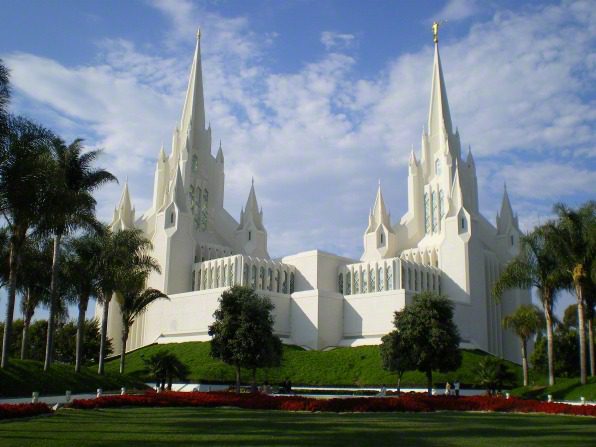
***
I’m late in calling attention to this, but a new article — this one by Dr. Alan Goff — has gone up in Interpreter: A Journal of Latter-day Saint Faith and Scholarship:
“Vox Populi and Vox Dei: Allusive Explorations of Biblical and Book of Mormon Politeias”
A review of David Charles Gore, The Voice of the People: Political Rhetoric in the Book of Mormon (Provo, UT: Neal A. Maxwell Institute for Religious Scholarship, Brigham Young University, 2019). 229 pp. $15.95 (paperback).
Abstract: David Gore’s book The Voice of the People: Political Rhetoric in the Book of Mormon is a welcome reading of Book of Mormon passages which engage in conversation with the biblical politeia — those parts of the Hebrew Bible that explore the constituent parts of the Israelite governance under judges and kings. Gore asserts that the Book of Mormon politeia in Mosiah is in allusive dialogue not just with the Bible but also the Jaredite experience of kingship in Ether. This allusive (intertextual) feature is present not just in the Book of Mormon but any text (Dead Sea Scrolls, New Testament, Apocrypha, Pseudepigrapha, and other writings) in the biblical tradition. The textual connection is conveyed when the biblical Noah is a type and King Noah the anti-type. The same is true of the biblical Gideon, who is a narrative bridge between the period of the judges and the transformation to monarchy; the Book of Mormon Gideon serves a similar typological function, bridging the reign of kings to the period of judges. Our modern notions of federalism and democracy owe much to the biblical legacy of covenant and republicanism, and although the Book of Mormon political structures share some features with modern federalism, the roots of both go deep into the Hebrew Bible. The Book of Mormon politeia, also a branch of that biblical political legacy, requires that readers understand that filiation, and demands awareness of the dialogue between the Book of Mormon and the Bible on the subject, so such reading can enrich our understanding of both Hebraic scriptures.
***
We had two nights in San Diego, which we used to the max in order to introduce The World’s Cutest 4.5-Year-Old™ to the Pacific Ocean (at Coronado Central Beach), the San Diego Zoo, and the Birch Aquarium at the University of California at San Diego’s Scripps Institution of Oceanography. (She was already fairly well acquainted with the Atlantic Ocean at various points, of course, and once even had a brief encounter with the English Channel that she no longer remembers.) Asked which of the animals at the Zoo she had liked the most, she replied “The elephant.” Oh yes, we responded. We got an unusually good view of those two young elephant brothers, didn’t we? “No, no, no,” she said, perhaps a bit puzzled by our obtuseness. “Not those. The stuffed elephant that we bought at the gift shop!”
***
For no particular reason, I think that I’ll again share a rather embarrassing personal story that also involves President Russell M. Nelson.
First, though, a word about Pope Shenouda III (1923-2012), who served as the 117th patriarch of the See of St. Mark — officially, the “Pope of Alexandria and the Patriarch of All Africa on the Holy Apostolic See of Saint Mark the Evangelist of the Coptic Orthodox Church of Alexandria” — which made him the head of the Coptic Christian Church of Egypt.
Baba Shenouda, as he was called, was famous for being, umm, not especially ecumenical in his outlook. And not merely toward Latter-day Saints, whom he made every effort — successfully — to block from gaining legal recognition in Egypt. (As the most powerful Christian figure in Egypt, he had considerable clout with Egyptian President Hosni Mubarak.) Once, while I was staying at the Université Saint-Joseph de Beyrouth, in Lebanon, I had an evening chat with a Lebanese friend there, a Jesuit priest and a very significant scholar. He himself was exasperated by Shenouda, who was notably hostile to Catholics and to various minority Christian churches in the Middle East. “The medieval monks,” my friend said, “had a neat solution for popes like Shenouda.” “They did?” I asked, with naïve innocence. “What was it?” “A little drop of poison in a cup,” he replied, “et voila! A new election!”
Anyway, I served for several years on what was called the Middle East Advisory Committee of the Church. (I’m not sure that it exists anymore, not at least with non-General Authority involvement. Or maybe I’m just not being invited anymore.) It was chaired by various members of the Twelve during that time, including Elder Holland, Elder Uchtdorf, and, for the longest period (I think), then-Elder Nelson.
We typically met twice annually, when the area presidency responsible for the Middle East were in Salt Lake City for General Conference from their base in Europe.
One day, with Elder Nelson presiding, we were discussing the challenge of gaining legal recognition in Egypt, and Pope Shenouda’s opposition came up as a topic.
“Pope Shenouda’s opposition won’t always be a factor,” I observed. “He’s well over eighty, so he won’t be in office too much longer.”
One of my finest moments, clearly. As soon as I said it, it dawned on me that Pope Shenouda and Elder Nelson were very nearly the same age. Elder Nelson took no apparent offense, but I spent the rest of the meeting trying, as unobtrusively as I could, to remove my foot from my mouth.
***
Finally, here are three horrific specimens from the literally inexhaustible Christopher Hitchens Memorial “How Religion Poisons Everything” File©:
Posted from Newport Beach, California












